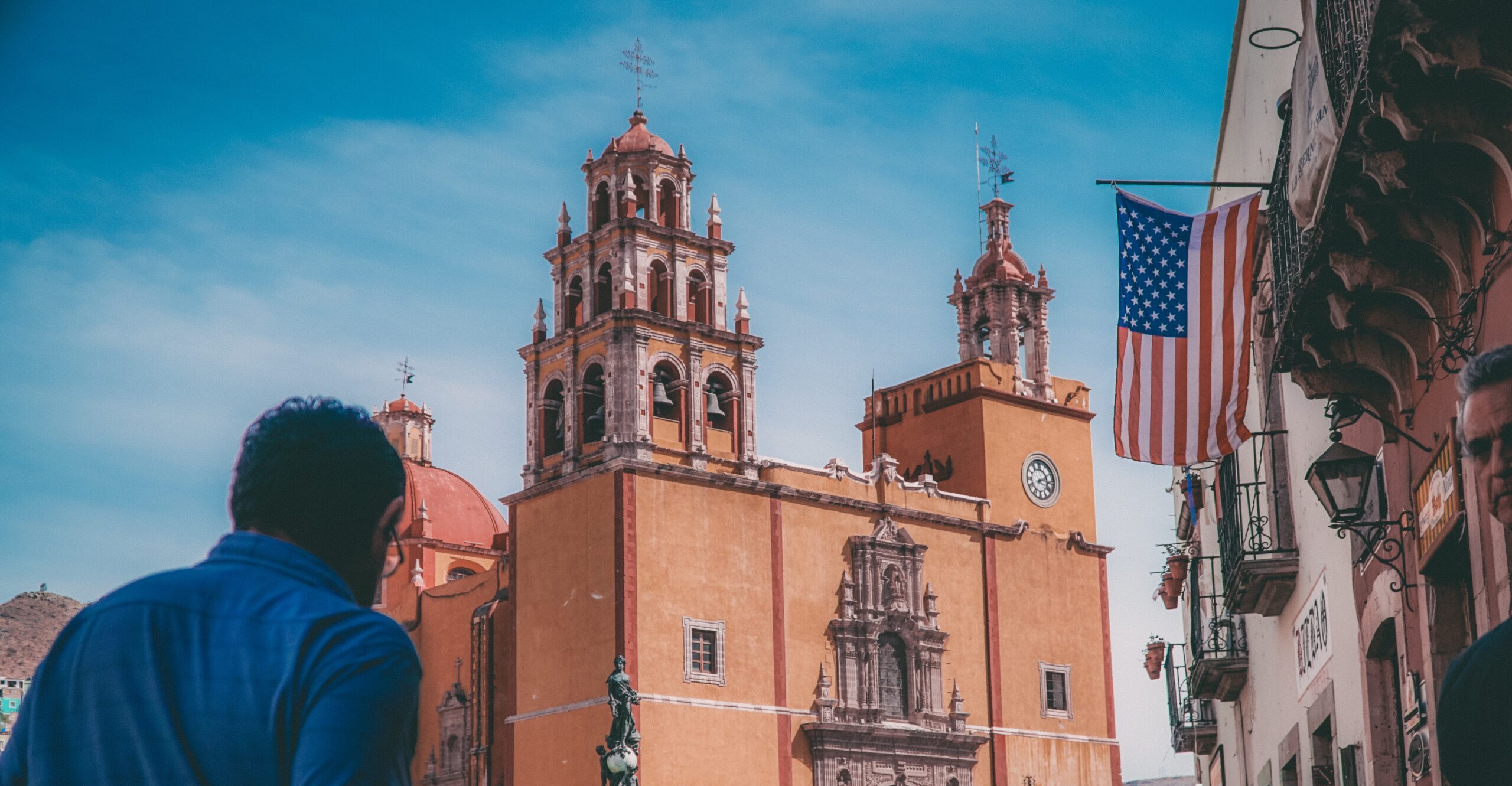With the confirmation of a new Supreme Court justice earlier this week and Election Day quickly approaching, I keep thinking, “how did we get here?” I’ve been asking a lot of questions lately about things I don’t fully remember from history class, like checks and balances, two-party systems, and the electoral college.
Religion & Government
One thing I remember feeling passionately about in school was the “separation of church and state,” which would be better called the “separation of religion and government.” I strongly support religious freedom and was taught that our nation’s secular structure sets us up for success.
The separation of religion and government means government should not control religion. It means you can believe and practice what you want to, and the government should not tell you otherwise (so long as you do not break the law). Since the Civil Rights Act of 19641, it legally means you cannot be discriminated against on the basis of your religion.
It does not mean the government banning people of a certain religion, like the President saying: “Donald J. Trump is calling for a total and complete shut-down of Muslims entering the United States.”2
The separation of religion and government also means religion should not control government. At our country’s inception, this was especially important in contrast to the nations of Europe that were ruled by monarchs rooted in church affairs. The U.S. government was designed to function independently of any religious body.
But religion and government must inevitably intersect, right? I mean, as individuals, we each have our religious affiliations (or lack thereof), and we all are subject to government. I can’t split myself into two.
The morals and ethics of our religious beliefs certainly influence our government. For example, we can ask our government to work for equality because we believe in equality as a concept. The founding fathers themselves did so based on their religious beliefs:
“We hold these truths to be self-evident, that all men are created equal, that they are endowed by their Creator with certain unalienable Rights, that among these are Life, Liberty and the pursuit of Happiness.”
The Declaration of Independence3
I can translate my God’s call to love my neighbor as myself4 into votes for politicians that I believe are most likely to help everyone.
However, we go too far when we try to turn our government into a tool to push a specific religious agenda on all Americans.
We should not ask our government to outlaw alcohol because we are Muslim. We should not ask our government to require ladies wear long skirts because we are Hasidic Jews. We should not ask our government to make abortion illegal because we are Catholic or Evangelical.
If we do ask, our representatives should politely decline. In their official capacity, their loyalty is to actual law, not religious law.
Unfortunately, we regularly see such asks raised and politicians doing the opposite of politely declining.
Conservative Christians & Republican Politicians
The Susan B. Anthony List, an organization whose goal is to end abortion, asked President Trump to support this goal. They asked for specific actions like nominating pro-life Supreme Court justices and moving federal funds away from Planned Parenthood. President Trump made them promises, they supported his 2016 campaign, and then he kept many of these promises.5,6
Perhaps President Trump is working with the Susan B. Anthony List so he can get their votes again this year. Or maybe ending abortion supports his own agenda, too.
Since Roe v Wade in 1973, the Republican party has opposed abortion on its platform, a position tied to support from conservative Christians.7
Why are Republicans willing to say “screw you” to the separation of church and state?
On a recent episode of Jameela Jamil’s podcast “I Weigh,” actress and activist Busy Philipps explained:
“Abortion in this country has become a thing that the right has taken…in order to pass a bunch of other really shitty stuff,…not that it’s not shitty for them to try to take away our autonomy and woman’s right to choose, but the fact of the matter is, they’re manipulating the narrative consistently, and they have been for over 20 years now, in order to pass all kinds of other agendas that uphold white supremacy and patriarchy. To get people elected that are not progressive.”
Referencing a 2013 Politico article, she continued:
“After Roe was passed, Jerry Falwell was also seeing that being overtly racist was falling out of favor. And so he was like, ‘But how do we get these people into office, how do we continue our agenda?,’ and he was like, ‘Abortion, that’s it. And we’re gonna appeal to people, and babies. We’re gonna make it about babies.’ And, they fuckin’ did it man.”
Combined & Lost
Conservative Christians have found their perceived “in” politically with the GOP. But in focusing on the single issue of abortion, they are also supporting a variety of other initiatives that are anti-Christian.
On the October 19, 2020 episode of The Daily podcast, an Arizona woman says she supports Trump because, “I am for God, for life, and for family. That’s it.”
If you really are for God, if you are for Jesus, ask yourself this:
What would Jesus do? Would he support policies that further marginalize people of color, immigrants, women, the poor, the sick, the disabled? Or would he help them?
In combining church and state, many Christians are losing sight of what should be most important to them.
Similarly, many Republicans are losing sight of a key pillar of political conservatism: government with minimum regulations2 and maximum distance from personal affairs. A truly conservative government not wrapped up in religion would value the personal liberty of uterus-owners to make decisions about their bodies.
When “conservative” and “religious” become synonymous, when the agenda of the few becomes the agenda of many, we lose. Not only are we are at risk of losing the essential medical care that is abortion care, but we have also lost a political system that serves us all, regardless of our religious beliefs.


